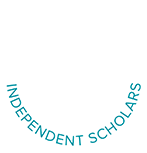Real name:
Biography:
For more than 40 years, I have been a professional magazine editor, freelance writer, and book author. I’ve started six magazines (city, regional, and national), was editor-in-chief of five inflight magazines, and was director of communications for AAA Colorado. Throughout my career, I have had to convey complex issues in clear, compelling, and engaging ways that attract and hold the interest of general readers.
Since 2008 I have worked full time on researching and writing about WWI's Commission for Relief in Belgium (CRB), its Belgian counterpart the Comite National, and German-occupied Belgium. The CRB was founded and run by a young Herbert Hoover. The CRB and CN fed nearly 10 million Belgian and northern French civilians trapped behind German lines every day during World War I. The food relief became the largest such humanitarian effort the world had ever seen, but is little known to most Americans today. I'm the first American historian in more than thirty years to write three books that are focused on the CRB in occupied Belgium during World War I.
Two of my three books have been Kirkus Best Books of the Year, while the most recent book was Publishers Weekly Booklife "Editor's Choice." The three boks are:
1. Behind the Lines (Milbrown Press, 2014), which was included in Kirkus Best Books of 2014: "An excellent history that should catapult Miller to the top tier of popular historians." (I'm still waiting for the catapult.) The book was a finalist in the history category of Foreword Reviews’ international Indie Book of the Year Awards (2014), and received an honorable mention in the history category of Writers Digest's annual book awards (2018). The Eric Hoffer Book Awards named the book the Best Self-Published Book of 2021, even though it was published in 2014.
2. WWI Crusaders (Milbrown Press), which was included in Kirkus Best Books of 2018: "A tour-de-force history. . . gripping historical narrative. . . A magnum opus that celebrates the qualities of compassion, honor, and humanitarian virtue." The book was an eleven-time finalist in eight contests (five national, three Colorado) and award winner in three (1 national, 2 Colorado), including a Bronze in Foreword Magazine's Indies Best Book of the Year Awards for War & Military History and winner in the Colorado Authors League's annual award for nonfiction History.
3. Yanks behind the LInes (Rowman & Littlefield, 2020), which was PW Booklife's "Editor's Pick." Kirkus stated: "This is a powerful work of history, as informative as it is dramatically gripping. An impressive blend of painstaking historical scholarship and riveting storytelling." It has been a nine-time finalist in seven contests (five national, two Colorado) and won the Colorado Humanities 2021 Colorado Book Awards in History.
Regarding the relationship between the three books: Behind the Lines tells the complex story of the beginnings of the CRB (August to December 1914); WWI Crusaders tells the complete story from August 1914 to May 1917 when the last Americans had to leave German-occupied Belgium because of America's April entry into the war; while Yanks behind the Lines is the concise summary of the CRB story in occupied Belgium.
My passion for this CRB topic began when I learned about the CRB and Belgium from my grandfather, Milton Brown, who had been a CRB delegate, and from my grandmother, Erica Bunge Brown, who was a 22-year-old Belgian in 1914. When they died, I inherited their diaries, journals, correspondence, and photographs from those times.
During my research and writing of both books, I relied on English translations of documents because I do not read German or Flemish (a Dutch derivative spoken in northern Belgium), and have only a cursory knowledge of French. I used standard scholarly procedures that I learned while earning a BA in history from the University of Denver, and from the previous research and writing of my first book, Stapleton International Airport: The First Fifty Years (Pruett Publishing, Boulder, 1983), which was described as “entertaining, informative, and pertinent” by Dr. H. Lee Scamehorn, professor of history at the University of Colorado at Boulder, in a 1984 review published in the Colorado Historical Society’s magazine.
My scholarship is best represented by my work on Behind the Lines and WWI Crusaders. I spent a total of nearly 10 full-time years researching and writing, including multiple trips to the Hoover Institution at Stanford, the Herbert Hoover Presidential Library in West Branch, Iowa, and the libraries of Princeton University. I’ve studied and/or collected the papers from more than 50 CRB delegates, as well as more than a hundred primary books and thousands of pages of primary source documents and letters related to World War I, the CRB, and Belgium. My indexing of materials has produced a card catalogue of 2,000 index cards and more than 1,500 pages of typed notes. Behind the Lines has six published pages of sources and 1,000 endnotes that fill twenty-eight published pages; WWI Crusaders has more than 3,000 end notes.
My work has also been supported by scholars who have read both books. Matthew T. Schaefer, the archivist at the Herbert Hoover Presidential Library, invited me in 2015 to be one of four historians to speak at a one-day symposium on Hoover and the CRB, and in 2018 Director Thomas Schwartz invited me to be the guest speaker at the annual gravesite ceremony for Herbert Hoover. Dr. Branden Little, a well-respected humanitarian relief scholar and professor at Weber State University in Ogden, Utah, agreed to write the foreword to Behind the Lines. Dr. George H. Nash, an eminent scholar and biographer of Herbert Hoover, agreed to be one of my two references for my application for a NEH grant (the other is Dr. Little).
I continue to work on learning more about the CRB, the Comite National, and the US and Belgium during WWI.
Company:

